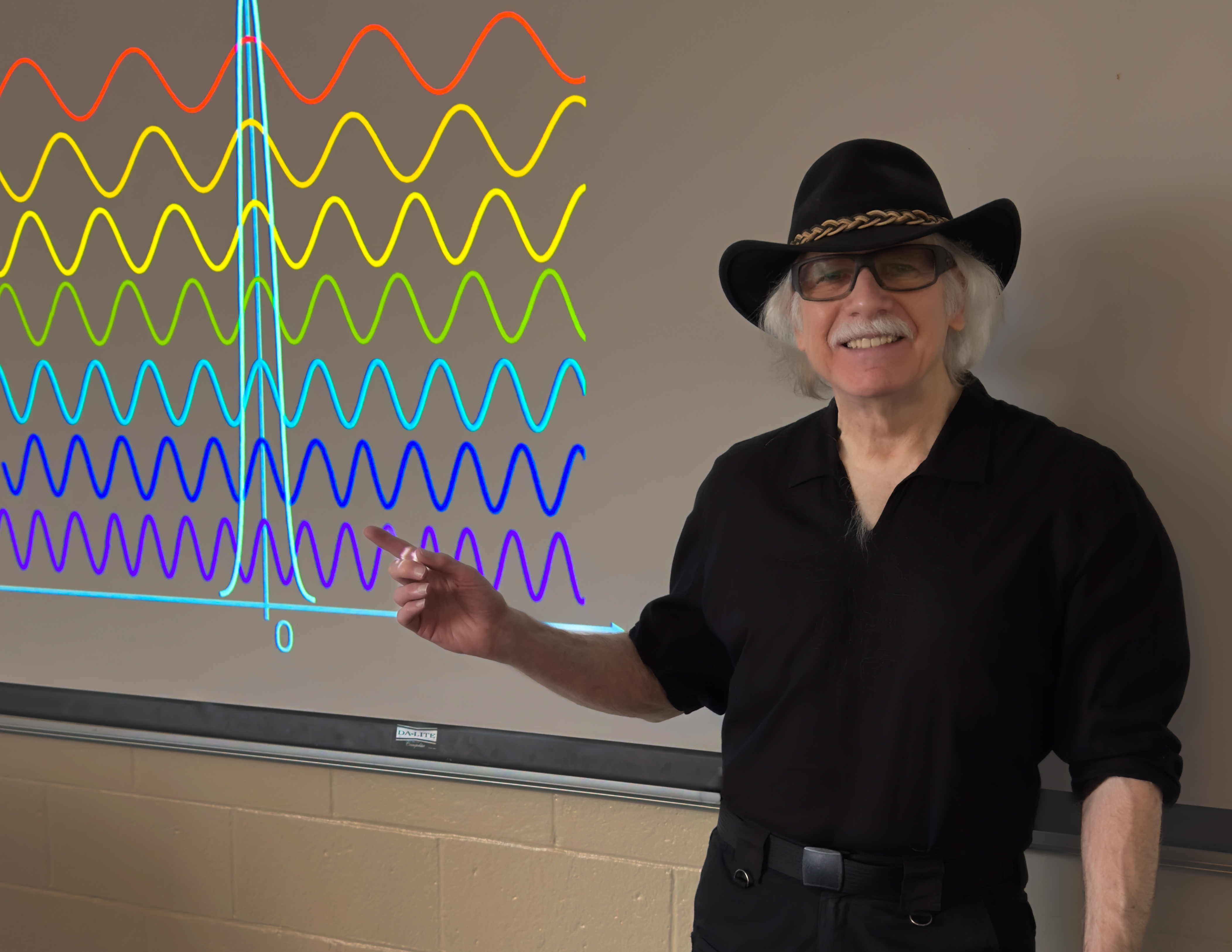Physicist Rick Trebino Awarded Optica R.W. Wood Prize
Mar 15, 2024 —

School of Physics Professor Rick Trebino
School of Physics Professor Rick Trebino has received the 2024 R.W. Wood Prize in recognition of his invention and development of techniques for the complete and rigorous measurement of ultrashort laser pulses. The R.W. Wood Prize is presented by Optica, (formerly OSA), Advancing Optics and Photonics Worldwide, in recognition of an outstanding discovery, scientific, or technical achievement or invention in the field of optics.
”I’m ecstatic to receive this recognition from Optica,” said Trebino, who serves as the Eminent Scholar Chair of Ultrafast Optical Physics in the School of Physics at Georgia Tech. “The vast majority of science’s greatest discoveries have resulted directly from more powerful techniques for measuring light, so I decided to devote my career to this important field, and it’s very satisfying to receive this honor for my work."
Ultrashort pulses are brief bursts of light, millionths of billionths of a second long — the shortest technological events ever created. Trebino’s techniques for measuring them have made possible a host of new research and technology applications in many areas, including the fundamental studies of matter and micro-material processing.
Trebino has pioneered ultrashort-pulse measurement techniques for over three decades. In 1991, he invented the frequency-resolved optical gating (FROG) technique, the first method for completely measuring arbitrary ultrashort light pulses in time. It took pulse measurement from blurry black-and-white artifact-ridden snapshots to high-resolution full-color images. The FROG technique remains the gold standard in ultrashort pulse measurement and is used worldwide in physics, chemistry, engineering, biomedical, and telecommunications applications.
More recently, Trebino has developed devices for measuring pulses with ever shorter and ever more complex temporal — and also spatial — variations. Thanks in large part to Trebino’s techniques, these exotic light pulses have become much better understood and hence much shorter, more stable, and much more useful. His devices have also played key roles in work resulting in several recent Nobel Prizes.
Rick Trebino received his Ph.D. in Applied Physics from Stanford University and joined Georgia Tech in 1998 after having worked at Sandia National Laboratories. He has received numerous other awards and is a Fellow of four international scientific societies, including Optica, the American Physical Society, the American Association for the Advancement of Science, and SPIE: the international society for optics and photonics.
Learn more about Trebino’s Ultrafast Optics Research Group here: frog.gatech.edu
About Optica
Optica (formerly OSA), Advancing Optics and Photonics Worldwide, is the society dedicated to promoting the generation, application, archiving, and dissemination of knowledge in the field. Founded in 1916, it is the leading organization for scientists, engineers, business professionals, students, and others interested in the science of light. Optica’s renowned publications, meetings, online resources, and in-person activities fuel discoveries, shape real-life applications, and accelerate scientific, technical, and educational achievement.

School of Physics Professor Rick Trebino
Writer: Lindsay C. Vidal
Assistant Communications
Director College of Sciences




